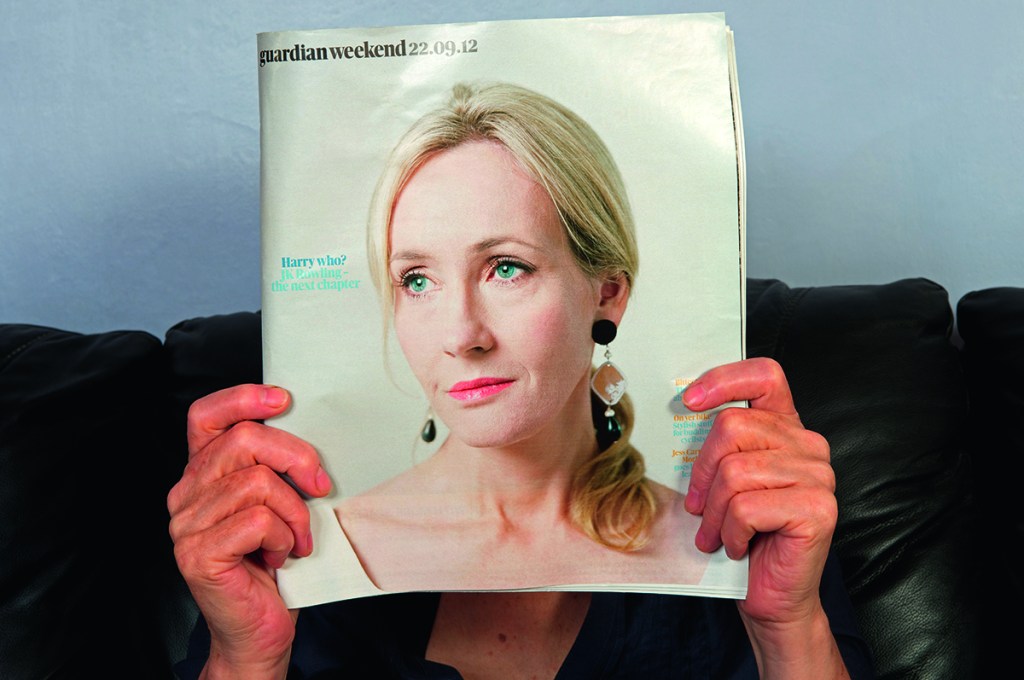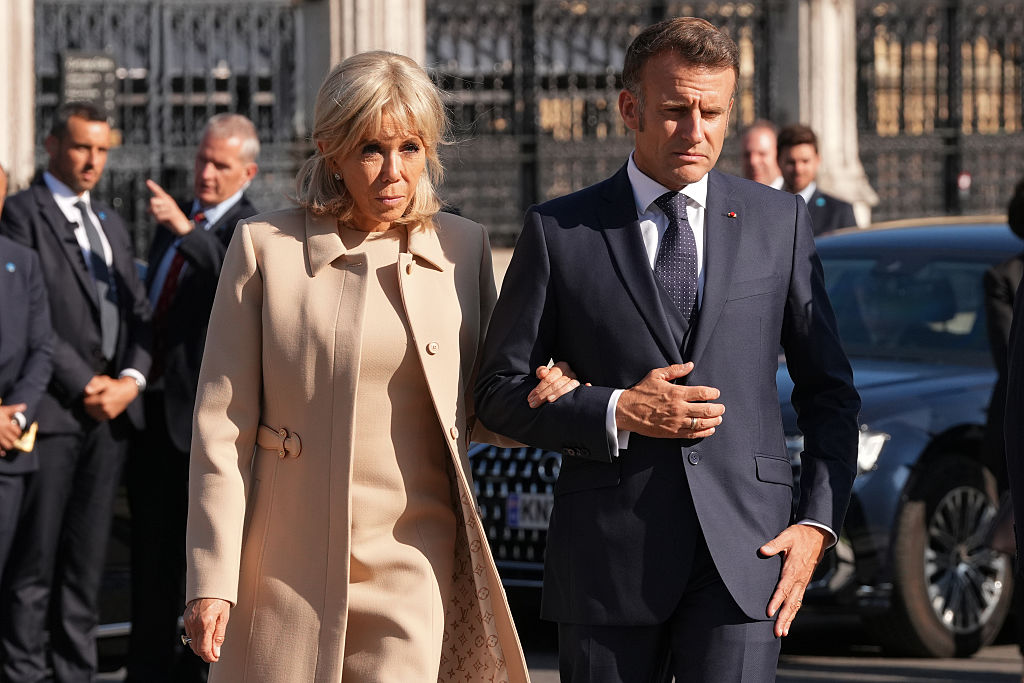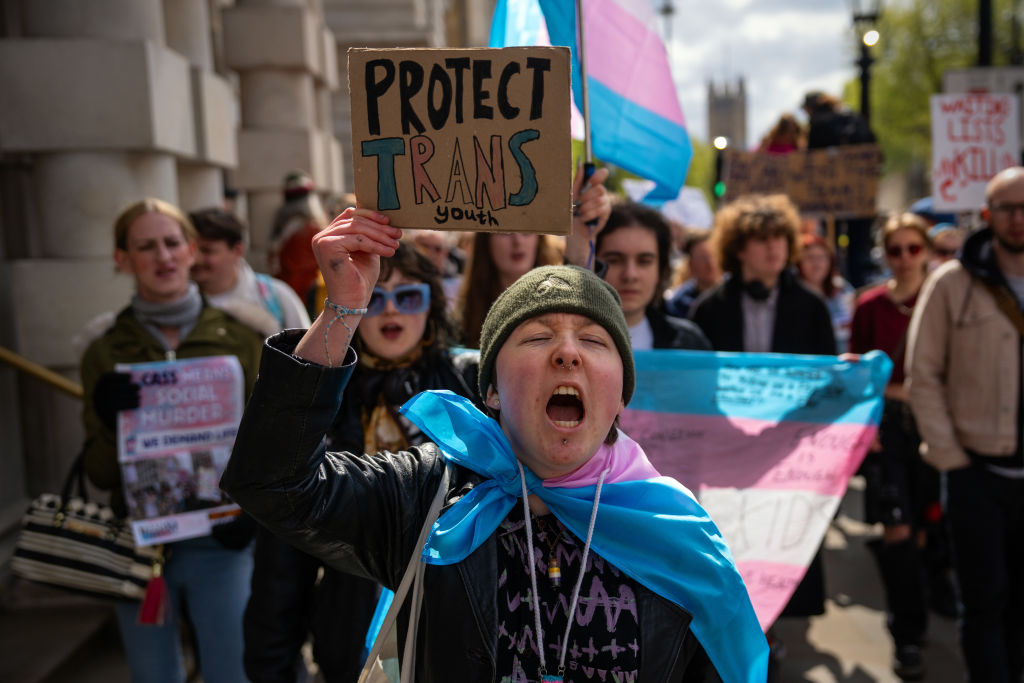When Roland Barthes wrote his 1967 essay “The Death of the Author,” he probably didn’t intend that, fifty-five years later, a major American news outlet would be provocatively suggesting that the world’s bestselling author should be de-personed, de-platformed or de-materialized from history. And yet that is exactly what has happened with the New York Times. They recently ran a series of advertisements on the subway featuring a reader named “Lianna” who is, as much of their subscriber base now are, “breaking the binary,” experiencing “queer love in color” and meditating on “heritage in rich cues.”
So far, so predictable. But the ads took a grimmer turn when one suggested that Lianna was “imagining Harry Potter without its creator.” This example of what the Times calls “independent journalism for an independent life” has taken up one of the most disquieting contemporary developments in the culture wars, as the newspaper has shamelessly monetized it for promotional purposes. Ever since J.K. Rowling wrote a long, thoughtful essay in June 2020 to explain her views on gender-identity issues, she has been a hate figure of almost comical proportions to the woke. And now, the Times’s advertisement has given succor, even encouragement, to those who despise her opinions.
It would be funny if it weren’t so grotesque. A certain sector of Harry Potter fandom — the more excitable end, whose social-media profiles proudly proclaim their dedication to Black Lives Matter, polyamory, Palestine and whatever social-justice issue is the flavor of the month — has now decided that Rowling is little less than the devil incarnate. The terms “TERF” (trans-exclusionary radical feminist) and “bigot” are two of the milder insults slung at her. It is not uncommon for Rowling’s detractors to post extreme hardcore pornography in replies to her on Twitter, along with referring to her by every sexual and scatological term imaginable. Their actions are, at best, juvenile and, at worst, prima facie examples of harassment. And now, the Times has implicitly taken their side. For Lianna and her allies, the advertisement is nothing short of just retribution. For the rest of us, it is a terrifying indictment of what modern American liberal media is capable of.
Many of Rowling’s readers are struggling to come to terms with the fact that the author they grew up idolizing does not share their social views and is happy to use her significant platform (14 million followers on Twitter) to argue her case and her perspective. Never mind that the essay that aroused so much attention and controversy was a liberal and sensible statement that included such phrases as “I believe the majority of trans-identified people… pose zero threat to others… Trans people need and deserve protection… of course trans rights are human rights and of course trans lives matter.” Rowling had dared to question the article of faith that trans women are women, and so the opprobrium brought down on her was relentless and vitriolic.
Nearly two years later, the controversy continues to resonate. She has been removed from everything from the much-hyped Harry Potter reunion show Return to Hogwarts on HBO Max to the marketing for the latest Fantastic Beasts film, The Secrets of Dumbledore, which she wrote and created. It would be infinitely easier for everyone from publishers to film executives if Rowling would either recant her heretical beliefs or simply disappear into obscurity. But she shows no interest in doing either, not least because the wealthiest female author since Agatha Christie has a near-infinite amount of what the vulgar might call “fuck-you money.” While her fellow authors are required to toe the line, on pain of career-ending cancellation, Rowling has the freedom to say and do what she likes, much to the chagrin of Lianna and, by implication, the New York Times.
We therefore arrive at the situation where a major writer is airbrushed from her own work, in a crude but potentially effective example of Stalinist revisionism in action. The Harry Potter fan site “The Leaky Cauldron” declared in July 2020 that “We will no longer be covering J.K. Rowling’s personal endeavors… Wizarding World coverage will not feature photos of or quotes from the author… Twitter posts that may be hurtful to members of this community will be hashtagged #JKR to allow for easy muting.”
Since then, frothing outrage at a woman daring to express independent opinions shows little sign of subsiding. No matter Rowling has released three bestselling books since publishing her essay, or that she has continued to be at the forefront of charitable endeavors, recently launching an appeal for children trapped in Ukrainian orphanages. She has transgressed, and is therefore fair game to be the target, implicit or otherwise, of those who have so certainly placed themselves on the right side of history.
To say “I stand with J.K. Rowling” is now a political declaration that many might feel uncomfortable making, with its attendant implication that one supports anti-trans movements or messaging. But it surely remains incumbent on every decent and open-minded reader to continue to imagine Harry Potter with its creator an intrinsic and unremovable part of the books, rather than an embarrassing addendum. Sorry, Lianna and the Times; this one just ain’t going to fly.
This article was originally published in The Spectator’s May 2022 World edition.

























